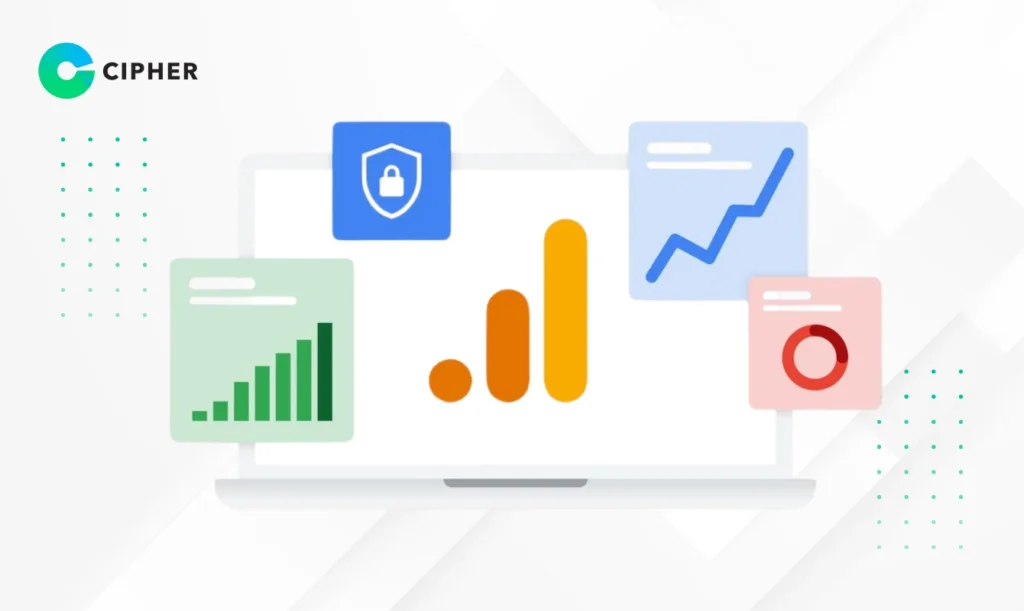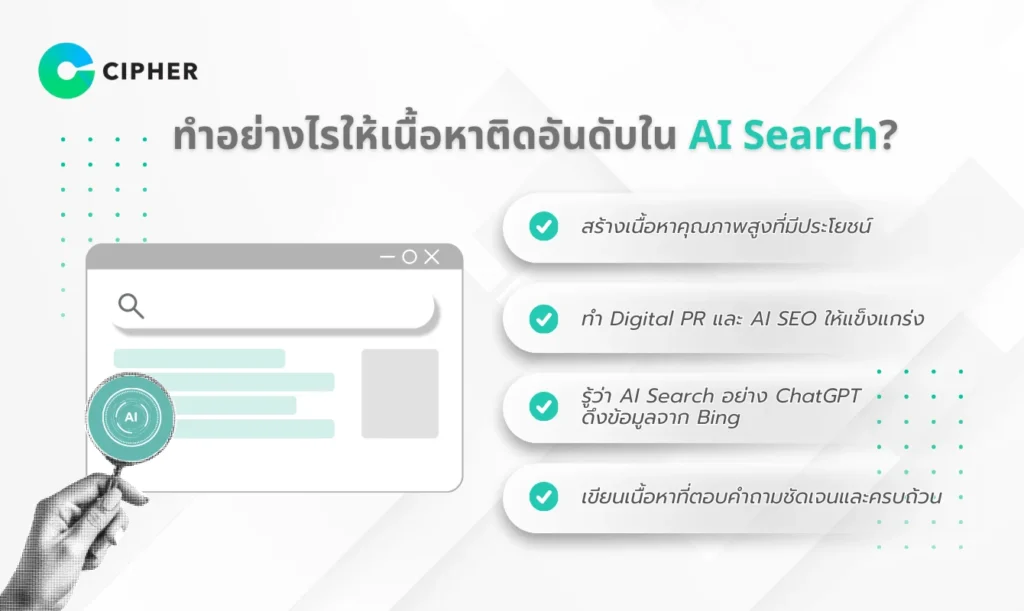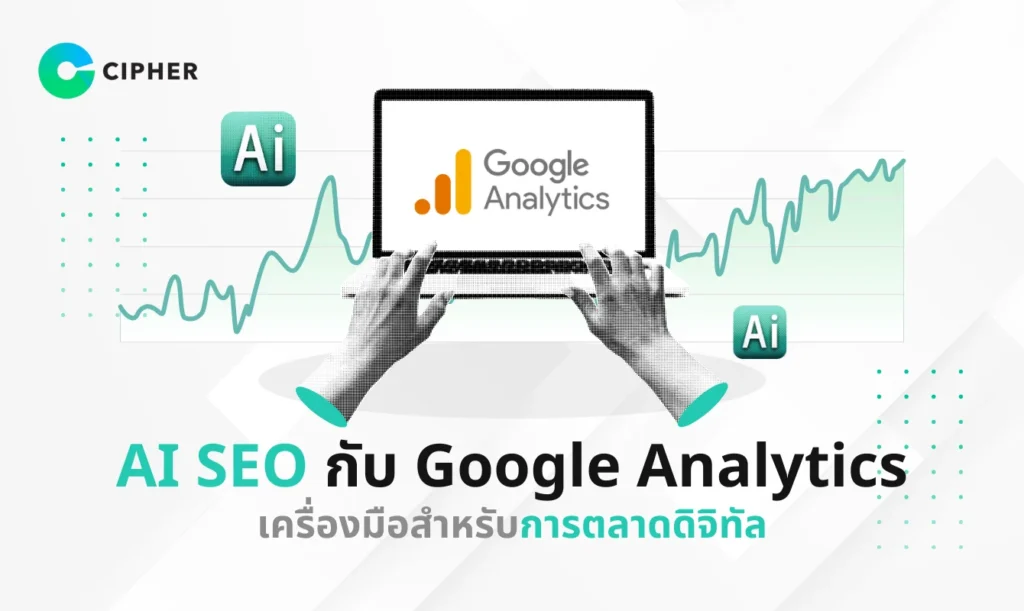In today’s rapidly evolving digital landscape, combining AI SEO and Google Analytics has become a sought-after strategy for businesses seeking growth. This article explores how leveraging these powerful tools together can transform your digital marketing approach and help you adapt to an era where artificial intelligence is revolutionizing consumer search behavior.
Table of Contents
Why Measuring AI SEO with Google Analytics Matters

Today’s digital marketers understand that effectively measuring and optimizing SEO requires powerful analytical tools. Google Analytics provides crucial insights for AI SEO implementation, helping businesses understand user behavior on their websites and optimize their strategies accordingly. This precision measurement is essential for strengthening your online presence in an increasingly competitive digital environment.
Who Benefits Most from AI SEO and Google Analytics Integration?
The powerful combination of AI SEO and Google Analytics is particularly valuable for:
- SME business owners looking to boost online sales without excessive advertising budgets
- Digital marketers seeking data-driven insights to enhance campaign performance
- Website administrators and SEO specialists monitoring site performance metrics
- Online entrepreneurs tracking customer journeys and conversion paths
- Growing businesses requiring comprehensive data for strategic decision-making
Setting Up Google Analytics to Track Your AI SEO Performance
Start measuring your AI SEO results with Google Analytics by following these straightforward installation steps:
HTML Code Implementation:
- Create a Google Analytics account if you don’t already have one
- Set up a Property for your website and obtain your Tracking ID
- Implement the Global Site Tag (gtag.js) in the head section across all webpages<
> - Verify functionality using Google Tag Assistant
CMS Installation Options:
- WordPress: Deploy the MonsterInsights plugin or manually add code to your header.php file
- Shopify/Wix: Utilize built-in system settings to integrate your Tracking ID
Extracting Valuable Insights Through AI SEO and Google Analytics
Once your AI SEO and Google Analytics setup is complete, you can begin analyzing performance data to optimize your strategy:
AI-Powered Insights:
Google Analytics processes user behavior through advanced algorithms, revealing critical metrics including:
- High-traffic pages and content
- Session duration statistics
- Bounce rate analysis
- Conversion rate performance
These insights enable you to refine content and website architecture to better align with user intent and adapt to evolving search algorithms like Google Search Generative Experience (SGE) and sophisticated Natural Language Processing (NLP) technologies.
Conversion Tracking for AI SEO:
Google Analytics enhances your AI SEO strategy by allowing you to establish and monitor specific goals such as:
- Strategic link clicks
- Key page views
- Form submission completions
This targeted approach to goal setting helps measure your AI SEO performance with greater accuracy:
- Align goals with core business objectives
- Utilize conversion data to evaluate content effectiveness
Essential Metrics to Monitor in Your AI SEO and Google Analytics Dashboard
A comprehensive AI SEO and analytics implementation helps you understand both user behavior patterns and SEO effectiveness. Focus on these critical metrics:
1. Bounce Rate Analysis
2. User Behavior Patterns
3. Traffic Source Diversification
Google Analytics reveals where your AI SEO traffic originates, including:
- Organic search performance
- Social media channel effectiveness
- Referral traffic from external websites
This data helps identify which channels deliver the strongest ROI for your digital marketing investments.
4. Core Web Vitals and Technical Performance
Leveraging Google Analytics to Maximize AI SEO Results
What is Google Analytics?
Understanding Google Analytics for SEO: Google Analytics offers comprehensive tracking capabilities for website visitor data, including:
- Traffic source attribution
- On-site behavioral patterns
- Content engagement metrics
This holistic view helps determine whether your SEO strategies are delivering expected results.
Comprehensive AI SEO Performance Analysis
1. Organic Traffic Growth
A fundamental indicator of AI SEO effectiveness is organic search traffic volume. Access this data at:
Reports Acquisition > All Traffic > Channels>
provides detailed visitor information from various acquisition sources.
2. Keyword Performance Analysis
Understanding which search terms drive traffic to your site is essential for AI SEO optimization. Access this data by connecting Google Analytics with Search Console:
- เชื่อมโดยไปที่ Admin > Property Settings > Adjust Search Console Settings
- Settings Once integrated, view keyword performance at: Reports > Acquisition > Search Console > Queries
3. Landing Page Effectiveness
Analyzing landing page performance is crucial for AI SEO strategy refinement, particularly for entry pages from search results.
Reports > Behavior > Site Content > Landing Pages
Key metrics include:
- Session volume
- Bounce rate percentages
- Page-specific conversion rates
4. Page Speed Optimization
Loading speed significantly influences search rankings. Monitor site performance metrics at:
>Reports Behavior > Site Speed > Page Timings
Use these insights to identify pages requiring technical optimization to support your AI SEO efforts.
5. Engagement Metrics Analysis
Bounce rates and average time on page serve as important indicators of AI SEO content quality. Higher engagement generally correlates with better search performance. Access these metrics at:
Reports > Behavior > Overview
6. Conversion Rate Tracking
Effective AI SEO and Google Analytics integration should include conversion tracking, measuring how often visitors complete desired actions:
- Configure goals in Google Analytics: Admin > Goals > New Goal
- Conversion Rate ได้ที่: Reports > Conversions > Goals > Overview
Adapting SEO Strategy as AI Transforms Search Behavior
Understanding the Difference: AI Search vs. Traditional Search
Google Traditional Search:
- Displays multiple website links in search results
- Requires users to visit individual sites to find specific answers
AI Search (ChatGPT, Claude, Gemini):
- Provides direct, synthesized answers from trained knowledge bases
- Delivers immediate information without requiring multiple site visits
- Supports conversational follow-up questions in a natural dialogue format
The Continued Relevance of SEO in the AI Era
Despite the rise of AI Search, current market data confirms Google still dominates search traffic with 97.11% market share in Thailand and 79.07% globally. This indicates that AI SEO and Google Analytics remain essential components of effective digital marketing strategy.
Search volume for terms like “hire SEO services” and “what is SEO” maintains consistent patterns throughout the year. While AI Search is changing search behavior, implementing AI SEO strategies remains crucial for visibility in traditional search results that continue to drive significant traffic.
Measuring AI-Generated Traffic with Google Analytics
Understanding AI Traffic Sources
Setting Up AI Traffic Tracking in Google Analytics 4
Follow this process to track AI-driven traffic:
- Create a custom Exploration Report in GA4
- Select “Page referrer” as your primary Dimension
- Choose “Sessions” as your key Metric
- Apply this filter formula to isolate AI traffic sources:
^https://(www.meta.ai|www.perplexity.ai|chat.openai.com|claude.ai|chat.mistral.ai|gemini.google.com|bard.google.com|chatgpt.com|copilot.microsoft.com)(/.*)?$
This configuration reveals:
- Which AI platforms most frequently reference your content
- Which AI tools generate the most referral traffic
- Visitor volume from each AI source
Business Categories That Should Prioritize AI Traffic Analysis
These business types should closely monitor AI traffic patterns through Google Analytics:
- E-commerce sites wanting visibility into AI-driven product discovery
- Content publishers seeking data on AI content utilization
- Professional service providers tracking expertise citations in AI responses
- Businesses in rapidly evolving industries monitoring information currency and relevance
Preparing for Google's AI-Enhanced Search Experience
Google AI Mode (Search Generative Experience – SGE) represents a fundamental shift in search functionality, integrating large language models with traditional search technology. Rather than simply presenting links, Google now generates contextual summaries, direct answers, and multi-source insights directly on search result pages.
Key Features of Google’s AI Search Mode:
- AI-generated content summaries
- Direct answers without requiring clicks
- Multimodal search incorporating visual and audio elements
- Conversation-based search interactions
Optimizing Content for AI Search Rankings

Increase your content’s visibility in AI search results through these AI SEO strategies:
- Develop genuinely valuable, high-quality content that addresses user needs
- Strengthen traditional SEO metrics and digital PR to improve rankings in Google and Bing
- Recognize that many AI Search platforms, including ChatGPT, source data from Bing’s index
- Create content with clear, comprehensive answers to common questions, facilitating AI understanding and information extraction
Professional AI SEO and Google Analytics Services
At CIPHER, we specialize in comprehensive AI SEO and Google Analytics solutions designed to elevate your business in today’s AI-driven marketplace. Our specialized service offerings include:
AI SEO Analytics Optimization
AI Content Intelligence
Generative SEO Tracking System
Data-Driven AI Marketing
Conclusion: The Future of AI SEO and Google Analytics
While artificial intelligence continues to transform online search behavior, the strategic combination of AI SEO and Google Analytics remains a cornerstone of effective digital marketing. This powerful toolset enables businesses to measure, refine, and optimize their digital presence with unprecedented precision. At CIPHER, we help businesses thrive in the AI era through modern website design and forward-thinking marketing strategies that anticipate and adapt to technological evolution.





